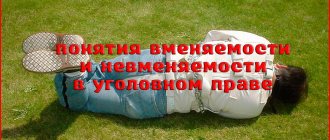The criminal process is a complex procedure for initiating criminal cases, investigation, judicial review and their resolution. As follows from the presented definition, the process can be divided into two large stages - pre-trial investigation and judicial review. The latter should be given special attention, since it is the court that makes the final decision, directly determining the outcome of a particular criminal case.
Considering this important circumstance, special attention is paid to such a concept as the composition of the court in criminal proceedings. What it is, how it is formed, what the powers of the judicial body are will be discussed further in the article.
Legislative regulation
The criminal process, in fact, being a procedure for criminal prosecution of a citizen, is strictly regulated.
Its implementation, as well as the corresponding legal relations arising from it, are regulated exclusively by the rules of law. All this fully applies to issues related to the composition of the court in criminal proceedings. Let us briefly consider the main sources of legal regulation:
Free legal consultation
+8 800 100-61-94
Constitution of the Russian Federation
This normative act is also sometimes called the Basic Law. This is due to the fact that its norms are fundamental, and other legal acts adopted both at the federal and local levels cannot contradict it.
Thus, according to Article 118 of the Constitution of the Russian Federation, justice in the country is carried out only by the court. In turn, judicial power is exercised through the use of civil, administrative, arbitration, constitutional and criminal proceedings.
Thus, it has been established that the only body that has the right to administer justice is the court , while it itself is carried out strictly within the framework of the current legislation.
Criminal Procedure Code of the Russian Federation
The Criminal Procedure Code of the Russian Federation (Code of Criminal Procedure of the Russian Federation) is a normative act that determines the course and procedure of criminal prosecution, including the procedure for criminal proceedings.
Article 30 of the Code of Criminal Procedure of the Russian Federation directly determines the composition of the court depending on the relevant judicial authority.
Law of the Russian Federation dated June 26, 1992 No. 3132-1 “On the status of judges in the Russian Federation”
This regulatory document defines the requirements, principles and procedure for judges to carry out their activities.
Yes, Art. 1. The law in question establishes that the judicial power is exclusively in the hands of judges, as well as, in some cases, representatives of the people who are involved in the consideration of criminal cases in the prescribed manner.
Arbitrage practice
The courts carry out a tremendous amount of work analyzing the legal materials of the accused. Such as:
- cassation petitions are considered by the presiding judge and two judges, the secretary, lawyers, and prosecutor participate in the process;
- sentences relating to articles 30 part 3, 228.1 part 1, art. 228. 1 part 2 p. and decisions on jurisdiction are made by the magistrate, with the presence of the secretary, state prosecutors, and the lawyer of the accused;
- civil cases are considered by one judge with the presence of a secretary;
- appeal decisions are made by a judicial panel consisting of a presiding judge, a secretary, a prosecutor, and defense attorneys.
For example, the recent high-profile case of the former Minister of Economic Development A. Ulyukaev. He was accused of extorting and receiving a large bribe (2 million rubles) from I. Sechin, who is the head of Rosneft, for a positive decision to purchase shares of PJSC Bashneft. The court rejected the request filed by the defense to return the case to the prosecutor's office so that the violations could be eliminated.
The trial took place in the Zamoskvoretsky District Court, consisting of:
- The presiding officer.
- 2 Judges.
- Secretary.
- Prosecutors.
- The defendant's lawyers.
The court imposed a sentence of 8 years in prison.
The European Convention for the Protection of Human Rights and Fundamental Freedoms in Article 6 states that every citizen has the right to a fair and public hearing within a reasonable time by an independent and impartial tribunal established on legal grounds.
In this case, the formation of a collegial composition of the court is necessary. The appointment of presiding judges, judges and rapporteurs in the judicial bodies of cassation and supervisory authorities is determined in accordance with the rules established by the Code of Criminal Procedure of Russia.
What is a court and what powers does it have?
Legal scholars distinguish three forms of power, which, in accordance with the law, act independently of each other and exclusively within their competence.
Let's list them:
- legislative;
- executive;
- judicial
Reference! Sometimes you can hear a common statement that there is a fourth branch of government in the form of the media. However, from the point of view of the theory of state and law, it is devoid of any grounds.
Judicial power is exercised by the court. Thus, the court in criminal proceedings is a special body whose task is to consider the case and make a decision on it, made on the principles of fairness and impartiality.
In accordance with the norms of the Code of Criminal Procedure of the Russian Federation, the judicial body has quite broad powers:
- finding a person guilty of committing the act charged to him and imposing a commensurate punishment;
- application of compulsory medical measures;
- application of educational measures to juvenile offenders;
- choosing a preventive measure for persons suspected of committing a criminal act;
- reversal or modification of a sentence passed by a lower court.
In other words, the judge has exclusive rights and powers within the process. However, it should be understood that they are all established and limited by law.
Structure by authority
The composition of the court should be distinguished from the participants in the process. Thus, in accordance with the law, the judicial composition may have a different number of persons. Let's take a closer look:
- The sole personality of the court . If a case is considered exclusively by one judge, this means that it is heard by him alone. It should be noted that the vast majority of cases are handled in this way.
- Collegially . In cases that are directly defined by law, it is possible to conduct the process by a panel consisting of several judges (usually three). Among them, the chairman of the board is elected, who determines the course of the court hearing.
- With the participation of jurors . In some cases, it is allowed to involve jurors in the process. As a rule, these are rather random persons who do not have a legal education and are not associated with the court apparatus.
Based on the evidence presented, the jury reaches a verdict regarding the defendant's guilt or innocence.
Attention! If the jury returns a verdict that the defendant is not guilty, the judge cannot prosecute him. However, in the event of an objectively unlawful guilty verdict, the judge has the right to acquit the person.
Participants in the process are a more diverse category than the composition of the court. So, these should include:
- the defendant;
- lawyer;
- victim;
- state prosecutor.
In addition, witnesses, specialists, experts, and translators may be involved in the process. All of them perform functions strictly stipulated by procedural legislation, without administering justice as such.
Next, we will analyze possible options for the composition of the court in relation to different judicial instances.
First instance
The first instance should be understood as the judicial body to which the materials of the criminal case are transferred from the investigation for consideration of its merits and the adoption of an appropriate sentence.
The decision of the first instance may be challenged in accordance with the procedure established by law. As a rule, the courts of general jurisdiction are the first instance. Federal judges hear relevant cases alone.
In criminal cases of minor gravity on private charges, consideration is carried out by magistrates. It is also carried out individually.
For certain types of crimes, it is allowed to involve jurors in the process. These are serious and especially grave acts, for which punishment in the form of the death penalty or life imprisonment is not provided.
For particularly serious state or extremely socially dangerous acts (for example, terrorism), the first instance becomes the highest court of the constituent entity of the Russian Federation. It is allowed to involve in the trial at the request of the accused and a jury of eight people.
Important! Criminal cases involving military personnel are considered in garrison and district military courts. In many ways, the procedure for determining the composition of the court is the same as for courts of general jurisdiction.
In the appellate instance
The appellate authority reviews decisions of the first instance. Thus, it is represented by district and higher judicial bodies.
A special feature of the appellate court is that it considers cases on their merits. In district courts, such cases are considered exclusively individually . Appeals regarding serious and especially serious crimes are considered collegially at higher levels.
At the cassation court
If it was not possible to achieve a review or change of the sentence on appeal, then it is possible to file a cassation appeal. The cassation court does not conduct the process as such, but only considers the validity and legality of the verdict.
Thus, relevant cassation cases are considered exclusively collegially by at least three judges.
Cassation proceedings are carried out:
- presidiums of courts of constituent entities of the Russian Federation, district military courts;
- Judicial Collegium for Criminal Cases of the Supreme Court of the Russian Federation;
- Judicial Collegium for Military Personnel Cases of the Supreme Court of the Russian Federation.
As a rule, the decision on a cassation appeal is not final due to the existence of supervision.
Supervisory authority
The legislator has provided special procedural deadlines for filing complaints to the appellate and cassation instances. If they are missed without a good reason, the sentence comes into force, and the initiation of appeal or cassation proceedings becomes impossible.
However, the possibility of reviewing the sentence in a supervisory manner is allowed . The relevant documents can be submitted at any time after the verdict enters into legal force.
The function of the supervisory authority is performed by the Presidium of the Supreme Court of the Russian Federation. Accordingly, the review is carried out exclusively collegially.
It should be noted that in practice supervision is carried out relatively rarely and concerns, in the vast majority of cases, the most high-profile and high-profile cases.
Question 3. Procedure for trial in the court of first instance
The consideration and resolution of a criminal case in the court of first instance goes through a number of stages: 1) the preparatory part of the trial; 2) judicial investigation; 3) the debate of the parties and the last word of the defendant; 4) ruling and proclamation of the verdict.
The preparatory part of the court session (Chapter 36 of the Code of Criminal Procedure of the Russian Federation) is the initial stage of the trial in the court of first instance, during which appropriate conditions are created for the subsequent consideration and resolution of the criminal case, the rights and legitimate interests of persons involved in the criminal process are ensured in the most complete way .
The preparatory part of the court session consists of sequential actions of the court and other participants in the trial.
1. The presiding officer opens the court session at the appointed time.
2. The appearance of summoned persons in court is checked.
3. If an interpreter participates in court proceedings, the presiding judge explains to him his rights and obligations.
4. Witnesses who have appeared before the start of their interrogation are removed from the courtroom.
5. The identity of the defendant is established and whether he was given a copy of the indictment (indictment) in a timely manner. If this was done less than seven days before the start of the trial, then the date of hearing the case is postponed to a later date, but not less than the full seven days.
6. The composition of the court and other participants in the trial are announced, after which it is explained to them that they have the right to challenge the composition of the court or any of the judges in accordance with Chapter. 9 of the Code of Criminal Procedure of the Russian Federation.
7. The presiding officer explains to the defendant the rights provided for in Art. 47 of the Code of Criminal Procedure of the Russian Federation (general rights of the accused available to him at the stage of trial), as well as Art. 821 of the Criminal Code of the Russian Federation (the right to deferment of serving a sentence for drug addicts).
8. The presiding officer explains to the victim (Article 42 of the Code of Criminal Procedure of the Russian Federation), the civil plaintiff (Article 44 of the Code of Criminal Procedure of the Russian Federation), their representatives (Article 45 of the Code of Criminal Procedure of the Russian Federation), as well as the civil defendant (Article 54 of the Code of Criminal Procedure of the Russian Federation) and his representative (Article 55 of the Code of Criminal Procedure of the Russian Federation) their rights and responsibilities in court proceedings.
9. The presiding officer explains to the expert his rights and responsibilities under Art. 58 Code of Criminal Procedure of the Russian Federation.
10. The presiding officer explains to the specialist his rights and responsibilities under Art. 270 Code of Criminal Procedure of the Russian Federation.
11. The presiding officer asks the parties whether they have any motions. Any request must be justified. After listening to the opinions of the participants in the trial, the court considers each submitted petition and makes a decision to grant the petition or to completely or partially refuse to satisfy it.
12. The court is considering the possibility of considering a criminal case in the absence of any of the participants in the process (Article 272 of the Code of Criminal Procedure of the Russian Federation).
The judicial investigation (Chapter 37 of the Code of Criminal Procedure of the Russian Federation) is the central stage of the trial, during which the examination of evidence takes place, both contained in the materials of the criminal case and additionally presented to the court by the parties.
The main difference between a judicial investigation and a preliminary investigation is that in a court session the main participants in the judicial investigation are the parties, and not the court. It is the parties in adversarial conditions who carry out interrogations and examine other evidence. The court only creates conditions for the parties to exercise their rights.
At the beginning of the judicial investigation, the state prosecutor sets out the charges against the defendant, i.e. reports its main content, and also provides the legal qualification of the crime. After this, the presiding officer asks the defendant whether he understands the charge, whether he pleads guilty, and whether he or his defense attorney wishes to express his attitude to the charge.
The procedure for examining evidence in accordance with Art. 274 of the Code of Criminal Procedure of the Russian Federation is established by the party that presents this evidence to the court. First, the evidence presented by the prosecution is examined, and then by the defense.
In ch. 37 of the Code of Criminal Procedure of the Russian Federation (Articles 275–290) contains a description of the actions to examine evidence carried out as part of a judicial investigation. At the beginning of the judicial investigation, the defendant is interrogated
(if he agrees to testify) and only then – other investigative actions. Basically, during the judicial investigation, these actions are carried out in the same order as in pre-trial proceedings in a criminal case. Therefore, in ch. 37 of the Code of Criminal Procedure of the Russian Federation stipulates only the specifics relating to the conduct of certain investigative actions.
The procedure for interrogating the defendant is regulated by Art. 275 Code of Criminal Procedure of the Russian Federation. If the defendant agrees to testify, he is questioned first by the defense attorney and the participants in the trial on the defense side. Then the interrogation is carried out by the state prosecutor and the participants in the trial on the prosecution side. The presiding judge rejects leading questions and questions that are not related to the criminal case. The court asks the defendant questions only after he has been questioned by the parties.
Interrogation of the victim in accordance with Art. 277 of the Code of Criminal Procedure of the Russian Federation is carried out in the same manner as the interrogation of witnesses. In addition, unlike witnesses, the victim, like the defendant, with the permission of the presiding officer, can testify at any time during the judicial investigation.
The interrogation of witnesses is regulated by Art. 278 Code of Criminal Procedure of the Russian Federation. Witnesses are questioned separately and in the absence of unexamined witnesses. The first question to be asked of the witness is by the party at whose request he was summoned to the court hearing. The judge asks the witness questions only after he has been questioned by the parties.
The interrogation of an expert at a court hearing takes place in the manner established in Art. 282 of the Code of Criminal Procedure of the Russian Federation. The court, at the request of the parties or on its own initiative, has the right to summon for questioning the expert who gave an opinion during the preliminary investigation, to clarify or supplement the conclusion he gave.
at the court hearing takes place according to the rules of Art. 283 Code of Criminal Procedure of the Russian Federation. The court appoints a forensic examination both on its own initiative and at the request of the parties. In this case, the presiding officer invites the parties to submit questions to the expert in writing. Then the questions are announced, after which the participants in the trial must be heard. A forensic examination is carried out in accordance with the general procedure established by Chapter. 27 Code of Criminal Procedure of the Russian Federation.
Physical evidence during the judicial investigation is examined in the manner prescribed in Art. 284 Code of Criminal Procedure of the Russian Federation. Inspection of material evidence is carried out at any time during the judicial investigation at the request of the parties. In this case, the court itself examines the material evidence and also demonstrates it to the participants in the trial.
Protocols of investigative actions and other documents in accordance with Art. 285 of the Code of Criminal Procedure of the Russian Federation can be announced if they indicate circumstances that are significant for the criminal case.
During the judicial investigation, an inspection of the area and premises is possible (Article 287 of the Code of Criminal Procedure of the Russian Federation). It is carried out by the court with the participation of the parties, and, if necessary, with the participation of witnesses, an expert and a specialist.
The investigative experiment within the framework of the trial in the court of first instance is regulated by Art. 288 Code of Criminal Procedure of the Russian Federation. It is carried out by the court with the participation of the parties, and, if necessary, also with the participation of witnesses, an expert and a specialist. This investigative action in the court of first instance is carried out according to the general rules established in Art. 181 Code of Criminal Procedure of the Russian Federation.
Presentation for identification of a person or object during a judicial investigation in accordance with Art. 289 of the Code of Criminal Procedure of the Russian Federation is carried out in accordance with the requirements of Art. 193 of the Code. This investigative action is carried out directly in the courtroom, but this is only possible in cases where it was not carried out earlier, at the stage of preliminary investigation. The same object or the same person cannot be presented for identification twice - first during the preliminary investigation, and then during the trial.
The procedure for conducting an examination during a judicial investigation is established in Art. 290 Code of Criminal Procedure of the Russian Federation. Inspection in accordance with Part 1 of Art. 179 of the Code of Criminal Procedure of the Russian Federation is carried out to detect special signs on a person’s body, traces of a crime, bodily injuries, identify a state of intoxication or other properties and signs that are important for a criminal case, if this does not require a forensic examination.
There is a special procedure for the end of the judicial investigation (Article 291 of the Code of Criminal Procedure of the Russian Federation). At the end of the examination of the evidence, the presiding officer asks the parties whether they wish to supplement the judicial investigation, and if so, with what exactly. If a petition is filed to supplement the judicial investigation, the court discusses it and makes a decision to satisfy it and to supplement the judicial investigation or to refuse satisfaction.
After this, the presiding judge declares the judicial investigation over.
Debate of the parties and the last word of the defendant (Chapter 38 of the Code of Criminal Procedure of the Russian Federation) is a stage of the trial in the court of first instance, during which participants in criminal proceedings, both from the prosecution and from the defense, are given the opportunity to speak out on the merits of the charges brought and investigated in court evidence meeting.
Debate is an alternating speech during which representatives of the prosecution and defense evaluate the evidence and propose to the court to make a decision on the guilt or innocence of the person, on the type and amount of the upcoming punishment if the person is found guilty, as well as on other issues.
The content and order of the parties' debates are established in Art. 292 of the Code of Criminal Procedure of the Russian Federation. As a general rule, the debate between the parties consists of speeches by the prosecutor and the defense attorney. In the absence of a defense lawyer, the defendant himself speaks in the debate between the parties.
The victim and his representative also have the right to participate in the debate between the parties at their request. A number of participants (civil plaintiff, civil defendant, their representatives, defendant) may submit petitions to participate in the debate between the parties.
In judicial debates, the prosecution side speaks first, and then the defense side.
According to Part 6 of Art. 292 of the Code of Criminal Procedure of the Russian Federation, after the participants in the debate of the parties have made speeches, each of them can speak one more time with a remark. A remark is a brief statement by one participant about the speech of another participant in the judicial debate. The right of the last remark belongs to the defendant or his defense attorney.
After the end of the debate between the parties, the presiding officer gives the defendant the last word.
The last word of the defendant is a speech during which the defendant addresses the court with various requests, and also expresses his attitude towards the act accused of him. When pronouncing the last word, the defendant is not limited in time. But the presiding officer has the right to stop him in the case when a person reports information that is not related to the criminal case.
Then the court immediately retires to the deliberation room to make a decision and pronounce the verdict..
The verdict is in accordance with paragraph 28 of Art. 5 of the Code of Criminal Procedure of the Russian Federation is a court decision on the innocence or guilt of the defendant and the imposition of punishment on him or on his release from punishment.
The verdict, in accordance with the procedure established by law, resolves the main issue of the entire criminal case. The verdict is passed on behalf of the Russian Federation (Article 296 of the Code of Criminal Procedure of the Russian Federation). This means that an acquittal indicates the state's refusal to prosecute a particular person. A conviction, on the other hand, means that the state has found the person guilty.
In Art. 297 of the Code of Criminal Procedure of the Russian Federation establishes such requirements for a sentence as legality, validity and fairness.
The legality of a sentence is its property, according to which the form and content of the sentence must comply with the current legislation.
Reasonableness of a verdict is the requirement that a verdict be based on consistent evidence directly examined in the trial.
Justice is a property of a sentence, according to which, in the absence of evidence of a person’s guilt, he should be acquitted, and if there is sufficient evidence of guilt, the person should be sentenced within the limits of the sanction established by the relevant article of the Special Part of the Criminal Code of the Russian Federation, strictly corresponding to the gravity of the act committed and the person convicted
In accordance with Part 1 of Art. 298 of the Code of Criminal Procedure of the Russian Federation, the verdict is pronounced by the court in the deliberation room. In this case, judges are required to keep the deliberation room secret. They have no right to disclose the opinions expressed during the discussion and determination of the verdict.
Judges deliberate on issues that, in accordance with Art. 299 of the Code of Criminal Procedure of the Russian Federation must be resolved when rendering a verdict in each criminal case: 1) whether it has been proven that the act of which the defendant is accused took place; 2) whether it has been proven that the defendant committed the act; 3) whether this act is a crime and what clause, part, or article of the Criminal Code of the Russian Federation provides for it; 4) whether the defendant is guilty of committing this crime; 5) whether the defendant is subject to punishment for the crime he committed; 6) whether there are circumstances mitigating or aggravating the punishment; 7) what punishment should be imposed on the defendant; other issues relevant to the criminal case.
299 of the Code of Criminal Procedure of the Russian Federation must be resolved when rendering a verdict in each criminal case: 1) whether it has been proven that the act of which the defendant is accused took place; 2) whether it has been proven that the defendant committed the act; 3) whether this act is a crime and what clause, part, or article of the Criminal Code of the Russian Federation provides for it; 4) whether the defendant is guilty of committing this crime; 5) whether the defendant is subject to punishment for the crime he committed; 6) whether there are circumstances mitigating or aggravating the punishment; 7) what punishment should be imposed on the defendant; other issues relevant to the criminal case.
When a criminal case is considered by a single judge, all issues are resolved independently in the deliberation room. If a criminal case was considered by a court collectively, then the issues are resolved by voting.
If a judge remains in the minority as a result of voting, he has the right to express his dissenting opinion in a written document. This document is not disclosed in the court of first instance, but is attached to the criminal case and can be used by the parties at subsequent stages.
Depending on how the provisions specified in Art. 299 of the Code of Criminal Procedure of the Russian Federation questions, the court issues an acquittal or conviction.
An acquittal is rendered in all cases where circumstances to be proven in a criminal case have not been established in relation to a specific person (Article 73 of the Code of Criminal Procedure of the Russian Federation). The acquittal of the defendant results in his rehabilitation.
Conviction in accordance with Part 4 of Art. 14 and part 4 art. 302 of the Code of Criminal Procedure of the Russian Federation cannot be based on assumptions. It is decided only on the condition that during the trial the defendant’s guilt in committing a crime is confirmed by the entire body of evidence examined by the court.
Both a conviction and an acquittal have a generally similar structure. The document consists of three parts: introductory, descriptive and motivating and operative.
The sentence, which was decided by the court in the deliberation room, in accordance with Art. 310 of the Code of Criminal Procedure of the Russian Federation is proclaimed by the presiding officer in the courtroom. All those present listen to the verdict standing. After the verdict is announced, the presiding officer explains to interested parties the procedure and deadlines for appealing it.
Copies of the verdict must be delivered to interested parties no later than five days from the date of its proclamation.








